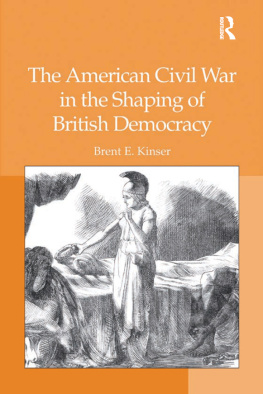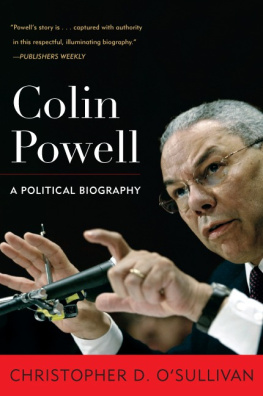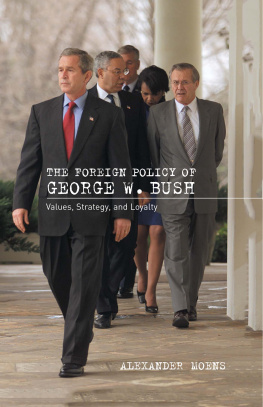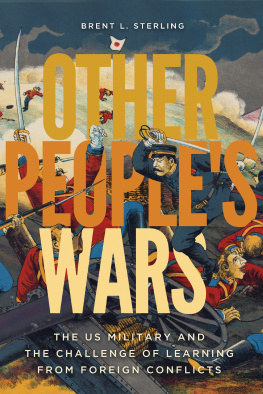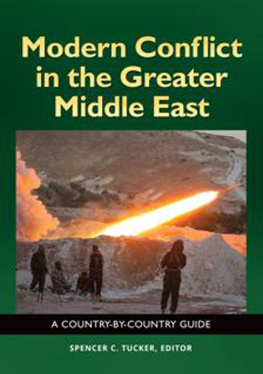More Advance Praise for The Strategist:
Bartholomew Sparrow has written a superb biography of Brent Scowcroft, a smart, honorable, and highly capable man who was the national security advisor for both Presidents Ford and Bush 41. As this book makes clear, its a great misfortune that Bush 43 did not employ Scowcroft in that same role, as he saw from the start that invading Iraq would turn the Middle East into a cauldron and seriously damage Americas standing around the world.
JOHN J. MEARSHEIMER, R. WENDELL HARRISON DISTINGUISHED SERVICE PROFESSOR OF POLITICAL SCIENCE, UNIVERSITY OF CHICAGO
Although overshadowed by the more flamboyant figures of Henry Kissinger and Zbigniew Brzezinski, Brent Scowcroft is considered by many foreign policy professionals as the ideal national security advisorself-effacing, an honest broker, and highly competent. And now he has a biography that does him justice and brings together his personal life, his multiple roles in the government, and the history he helped to make. Sparrows fascinating account sheds a great deal of light on the man and his tumultuous times.
ROBERT JERVIS, ADLAI E. STEVENSON PROFESSOR OF INTERNATIONAL POLITICS, COLUMBIA UNIVERSITY
Every American knows the name and the career of past presidents. Little attention is given to individuals who should have been presidentfor either party. Brent Scowcrofts contributionsas national security advisor to two presidents, as a military leader, and a public officialare unmatched. Sparrows book documents over half a century of contributions as a public intellectual with a style that encourages trust and respectful dialogue among concerned citizens. This man is the model of a great American.
JOHN DEUTCH, INSTITUTE PROFESSOR, MIT, FORMER DIRECTOR OF CENTRAL INTELLIGENCE, DEPUTY SECRETARY OF DEFENSE, AND UNDERSECRETARY OF ENERGY
From Kennedy to Obama, Brent Scowcroft was probably the most respected, admired, and successful national security advisor. In this comprehensive, judicious, and thoughtful biography, Bartholomew Sparrow beautifully illuminates the qualities of mind and character that contributed to Scowcrofts unique stature.
MELVYN P. LEFFLER, EDWARD STETTINIUS PROFESSOR OF AMERICAN HISTORY, UNIVERSITY OF VIRGINIA
THE STRATEGIST

Copyright 2015 by Bartholomew Sparrow.
Published in the United States by PublicAffairs, a Member of the Perseus Books Group
All rights reserved.
Printed in the United States of America.
No part of this book may be reproduced in any manner whatsoever without written permission except in the case of brief quotations embodied in critical articles and reviews. For information, address PublicAffairs, 250 West 57th Street, 15th Floor, New York, NY 10107.
PublicAffairs books are available at special discounts for bulk purchases in the U.S. by corporations, institutions, and other organizations. For more information, please contact the Special Markets Department at the Perseus Books Group, 2300 Chestnut Street, Suite 200, Philadelphia, PA 19103, call (800) 810-4145, ext. 5000, or e-mail .
Book Design by Trish Wilkinson
Set in 11 point Adobe Garamond Pro
Library of Congress Cataloging-in-Publication Data
Sparrow, Bartholomew H., 1959
The strategist : Brent Scowcroft and the call of national security / Bartholomew Sparrow.First edition.
pages cm.
Includes bibliographical references and index.
ISBN 978-1-58648-963-2
1. Scowcroft, Brent. 2. National Security Council (U.S.)Officials and employeesBiography. 3. National securityUnited StatesHistory20th century. 4. National securityUnited StatesHistory21st century. 5. United StatesMilitary policyHistory20th century. 6. United StatesMilitary policyHistory21st century. 7. GeneralsUnited StatesBiography. 8. United States. Air ForceOfficersBiography. 9. United StatesForeign relations. 10. StrategyUnited States. I. Title. II. Title: Brent Scowcroft and the call of national security.
E840.8.S38S63 2015
353.1'224092dc23
[B]
2014028318
First Edition
10 9 8 7 6 5 4 3 2 1
To Christopher Grant Sparrow
Contents

Photo insert between

DONT ATTACK SADDAM, read the headline of a Wall Street Journal op-ed on Thursday, August 15, 2002. The twelve-hundred-word opinion piece argued that the invasion and occupation of Iraq would be very expensive and have very serious and bloody consequences. It cautioned that a campaign against Iraq would divert the United States from the real war against terrorism for an indefinite period and that such a war, if conducted without full international support, would strain relations between the United States and other countries. And without enthusiastic international cooperation, especially on intelligence, it was by no means clear the United States could win the global war against terrorism.
The op-ed argued that Saddam Hussein was first and foremost a power-hungry survivor who had little cause to join with Al Qaeda and that he could be deterred just like other aggressors. It warned, too, that should the United States attack Iraq, the ensuing war could swell the ranks of terrorists, sidetrack US foreign policy from grappling with the more important Israeli-Palestinian conflict, and possibly destabilize Arab regimes in the region (the irony being that one of Saddams strategic objectives was precisely such destabilization).
The argumentwhich proved to be sadly prescientechoed those made by other opponents of the war, chiefly on the political left. Which is what made the identity of its author so startling. The op-ed had been written by a retired US Air Force lieutenant general, a former military assistant under President Richard Nixon, and the US national security advisor under presidents Gerald Ford and George H. W. Bushthe seventy-seven-year-old Brent Scowcroft.regarded Washington insider, and a man widely admired for his judiciousness and discretion.
By most measures, Scowcrofts op-ed seemed grossly out of character. It rejected the war plans being formulated by President George W. Bush, who was the son of Scowcrofts close friend and former boss and who had himself appointed Scowcroft as the chairman of the Presidents Foreign Intelligence Advisory Board (PFIAB, pronounced piffy-ab). It directly criticized Scowcrofts protge, national security advisor Condoleezza Rice, whod worked under Scowcroft from 1989 to 1991. And it sharply challenged the views of other friends and former associates of Scowcroft, including Vice President Dick Cheney (secretary of defense under George H. W. Bush) and deputy national security advisor Stephen Hadley (Scowcrofts colleague in the Ford and Bush administrations and a former principal of the Scowcroft Group, Scowcrofts consulting firm). For a man known for his quiet diplomacythe consummate Washington insiderthis act of public disagreement was a shocking gesture. No wonder Leslie Gelb, president of the Council on Foreign Relations and a former editor of the
Next page


